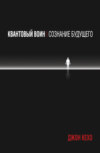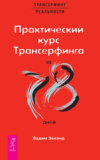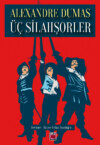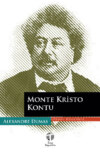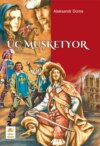Kitabı oku: «The Last Vendée», sayfa 37
XIX.
THE MOOR OF BOUAIMÉ
While Bertha endeavored to bring Michel from his swoon (which was chiefly caused by suffocation) Jean Oullier reached the outer air, followed by Courte-Joie, whom Trigaud drew up by the same means he had used to lower him. A moment more and all three were safely outside.
"Ah ça! were you the only ones in there?" said Courte Joie to Jean Oullier.
"Yes."
"And the others?"
"They took refuge under the stairway; the ceiling fell before they had time to get to us."
"Are they dead?"
"I don't think so; for about an hour after the soldiers left we heard the stones moving and voices. We called to them, but they did not hear."
"It is a lucky chance we came."
"That it is; without you I could never have got through that wall, especially with the young baron in such a state. Ha! I've made a fine campaign of it, faith," muttered Jean Oullier, shaking his head as he looked at Bertha, who, having drawn Michel's head and shoulders on her knees and brought him to his senses, was now expressing to him all the happiness she felt in recovering him.
"And it is not over yet," said Courte-Joie, ignorant of the meaning the old Vendéan gave to his words, and anxiously looking to the east, where a broad purple line announced that the day was breaking.
"What do you mean?" asked Jean Oullier.
"I mean that two hours more of darkness would have mightily helped our safety; a cripple, a fainting man, and a woman are not so easy to man[oe]uvre on a retreat. Besides, the victors in yesterday's fight will swarm upon the roads to-day-if they don't beat the woods."
"Yes; but I'm at ease now. I don't have that roof over my head."
"You are only half saved yet, my good Jean."
"Well, let us take precautions."
So saying, Jean Oullier began to search for the cartridge-boxes of the dead, and took their contents. Then he loaded his gun as coolly as though he were starting on a hunt, and went up to Bertha and Michel. The eyes of the latter were closed as if he were unconscious.
"Can you walk?" Jean Oullier said to him.
Michel did not answer. When he first opened his eyes he saw Bertha, and closed them hastily, conscious of the difficulties of his position.
"Can you walk?" repeated Bertha, in a tone which the latter could no longer pretend not to hear.
"I think so," he replied.
In point of fact he had only a flesh wound in the arm; the bone was not injured.
Bertha had examined the wound and slung the arm about his neck with her white silk cravat.
"If you can't walk," said Jean Oullier, "I'll carry you."
At this fresh proof of the change in Jean Oullier's feelings to the young baron, Bertha went up to him.
"You must explain to me why you took away my betrothed husband," she said, emphasizing the last two words; "and why you persuaded him to leave his post and be dragged into this affair which has exposed him, in spite of all the dangers he may have met, to serious and shameful accusations."
"If Monsieur de la Logerie's reputation has suffered through me," replied Jean Oullier, gently, "I will repair it."
"You?" said Bertha, more and more astonished.
"Yes," said Jean Oullier; "for I can and will say openly that with all his effeminate ways, this young man has shown himself to be full of courage and constancy."
"Will you really do that, Jean Oullier?" cried Bertha.
"Not only will I do it," said the old Vendéan, "but if my testimony is not enough I will get that of the brave men beside whom he fought, – for I now desire that his name be counted honorable and honored."
"Is it possible that you say that, Jean Oullier?"
Jean Oullier nodded.
"You who would rather see me dead than bearing that name?"
"That's how things change in this world, Mademoiselle Bertha. I desire now to see Monsieur Michel my master's son-in-law."
Jean Oullier said the words with a look so expressive and a voice so sad and meaning, that Bertha felt her heart tighten, and she thought involuntarily of Mary. She was about to question the old keeper, but, at that moment, the sound of trumpets came down upon the wind from the direction of Clisson.
"Courte-Joie was right!" exclaimed Jean Oullier. "The explanation you ask of me, Bertha, you shall have as soon as circumstances permit; for the present we must think of our own safety." Then, listening attentively, he added: "Come, let us start! there's not an instant to lose, I'll answer for that."
Passing his hand through Michel's well arm to support him, he gave the signal to depart. Courte-Joie was already perched on Trigaud's shoulders.
"Which way shall we go?" he asked.
"Better make for the lonely farmhouse of Saint-Hilaire," replied Jean Oullier, who felt Michel staggering under his first few steps. "It is quite impossible that Monsieur Michel should do the twenty miles to Machecoul."
"Straight for Saint-Hilaire, then," said Courte-Joie.
In spite of their slow advance, by reason of Michel's feebleness in walking, they were not more than a few hundred steps from the farm, when Trigaud showed his rider with some pride a sort of club he had been peeling and polishing with his knife as he walked along. It was made from the stem of a wild apple-tree, of suitable length, which Trigaud had spied in the orchard at Pénissière; he thought it admirably suited to replace the terrible scythe he had shattered at Chêne.
Courte-Joie gave a cry of anger. Evidently he did not share the satisfaction with which his companion flourished the knotty bulk of his new weapon.
"The devil take that animal to the lowest hell!" he cried.
"What's the matter?" asked Jean Oullier, leaving Michel to Bertha's care and hurrying on to join Courte-Joie and Trigaud.
"Matter!" cried Courte-Joie, "the matter is that this brute has put the whole band of the red-breeches on our track! May the plague choke me for not having thought of it before! Ever since we left La Pénissière he has been a regular Tom Thumb; and, unluckily for us, it isn't bread crumbs he has strewn along the way, but the twigs, leaves, bark of his tree. Those scoundrelly soldiers, who, I haven't a doubt, will find out that we dug among the embers, are by this time at the other end of the trail this animal has provided for them. Ah, double, treble, quadruple, brute!" concluded Courte-Joie, by way of peroration.
Joining action to words he brought down his fist with all his might on the skull of the giant, who seemed no more conscious of the blow than if Courte-Joie had merely passed his hand through his hair.
"Damn it!" said Jean Oullier, "what's to be done now?"
"Give up the farm at Saint-Hilaire, where they'd catch us like mice in a trap."
"But," said Bertha, quickly, "Monsieur Michel cannot possibly go any farther. See how pale he is!"
"Let us bear to the right," said Jean Oullier, "and make for the Bouaimé moor, where we can hide among the rocks. To walk faster and leave fewer tracks, I'll take Monsieur Michel on my shoulders. We'll walk in file, and Trigaud's steps will hide the rest."
The Bouaimé moor, toward which Jean Oullier now guided the little troop, lies about three miles from the village of Saint-Hilaire; the river Maine must be crossed to reach it. It extends on the north as far as Rémouillé and Montbert; the lay of the land is very uneven and it is strewn with granite rocks, some evidently placed there by the hand of man. Druidic stones and dolmens lift their brown heads crowned with moss amid tufts of heather and the yellow flowers of the gorse and broom. It was to one of the most remarkable of these stones that Jean Oullier now guided the little caravan. This stone was flat, and rested on four enormous corner-stones of granite. Ten or a dozen persons could easily have lain in its shadow.
Michel was no sooner there than he gave way entirely, and would have fallen flat on the ground if Bertha had not supported him. She hastened to gather ferns, which she spread beneath the dolmen; and Michel was no sooner laid upon them than, in spite of the gravity of the situation, he fell soundly asleep.
Trigaud was stationed as sentinel on the dolmen; aboriginal statue on an aboriginal pedestal, he called to mind by his mighty outline the giants of two thousand years ago, who raised that altar. Courte-Joie, unstrapped, lay down to rest near Michel, whom Bertha would not leave, in spite of the exhaustion, both moral and physical, which the fatigues of the previous day and night had entailed upon her. Jean Oullier walked away, partly to reconnoitre the situation, and partly to obtain provisions, of which they stood greatly in need.
For about two hours Trigaud's eyes had roved over the broad expanse of the savanna before and around him. Not a sound had reached his ear, attentively listening, except the monotonous hum of bees and wasps pilfering sweetness from the broom and the wild thyme. The mists which the sun was drawing from the earth began to assume to Trigaud's eyes a variety of rainbow tints, the shimmerings of which, added to the rays of the sun, which were now falling plumb on his tufts of red hair, benumbed his brain; various somniferous combinations were about to plunge him into a siesta, not induced, unfortunately for him, by any meal, when the sudden report of a firearm roused him from his torpor.
He looked in the direction of Saint-Hilaire and saw the white vapor produced by the shot. Next, he saw a man running at full speed, apparently making for the dolmen. With one bound Trigaud was off his pedestal. Bertha, who had resisted sleep, heard the shot and immediately waked up Courte-Joie.
Trigaud took the cripple in his arms and hoisted him above his head till he was fully ten feet off the ground, saying but two words, which, however, needed no commentary: -
"Jean Oullier."
Courte-Joie shaded his eyes with his hand and had no difficulty in recognizing the old Vendéan; but he noticed that instead of making direct for the dolmen, Jean Oullier had taken to the opposite hill and was heading for Montbert. He also observed that instead of running on the slope of the hill, where he might have been sheltered from the eyes of his pursuers, the old huntsman had chosen the most exposed places, keeping in full view of whoever was within three miles of him.
Jean Oullier, he knew, was far too wary to act heedlessly; he must have some good reason for his present behavior; no doubt he was attracting the enemy's attention to himself in order to divert it from the rest of the party. Courte-Joie therefore concluded that the wisest thing for him and his companions to do was to stay in their present shelter and await events, carefully watching, meantime, all that happened.
Whenever intelligence was needed instead of senses, Courte-Joie no longer trusted to Trigaud. He had himself hoisted to the top of the dolmen, although, small as his truncated body was, he thought best not to display it too openly on that pedestal. He therefore lay down flat on his stomach with his face turned in the direction of the hill up which Jean Oullier was proceeding.
Soon, at the very place whence the Vendéan had issued, he saw a soldier, then another, then a third; he counted them up to twenty. They did not seem eager to measure speed with their game; they simply spread over the moor to cut off his retreat in case he attempted to return. These equivocal tactics increased Courte-Joie's watchfulness; for they led him to think that the soldiers had some other object in view than the mere pursuit of the Vendéan. The hill which the latter was mounting ended, about half a mile from the point where Jean Oullier then was, in a sharp point of rocks, at the foot of which was a bog. It was on that spot, no doubt because Jean Oullier was aiming for it, that Courte-Joie's attention was now fixed.
"Hum!" said Trigaud, suddenly.
"What is it?" asked Courte-Joie.
"Red-breeches," replied the other, pointing to the bog.
Courte-Joie followed the direction of Trigaud's finger and saw the barrel of a gun in the midst of the reeds; then a form. It was that of a soldier, and he, like the one first seen on the heath, was followed by twenty others. Courte-Joie saw them crouching among the reeds like sportsmen on the watch. Their game was Jean Oullier. If he descended by the point of rocks, as he was evidently about to do, he must fall into the ambush.
There was not a moment to be lost in warning him. Courte-Joie did not hesitate; he seized his gun and fired it, taking care to hold the muzzle below the bushes and to fire behind the dolmen. Then he looked hastily back to the scene of action.
Jean Oullier had heard the signal and knew the ring of Courte-Joie's little gun; he was not mistaken for a moment as to the reasons that constrained his friend to abandon the concealment he was preserving for them at such cost to himself. Instantly he made a half turn, and instead of continuing his way to the steep descent and the bog, he rapidly descended the hill he had been climbing. He no longer ran, he flew; no doubt some plan had occurred to him, and he was hurrying to put it into execution. At the rate he was coming down he would join his friends in a few moments.
But in spite of Courte-Joie's precautions to conceal the smoke of his shot, the soldiers had seen the direction from which it came, and those on the moor as well as those in the bog joined forces behind Jean Oullier (who was still coming down at a great pace), and seemed to be consulting together while awaiting orders.
Courte-Joie glanced about him, apparently studying each point of the horizon; he wet a finger and lifted it to discover the direction of the wind, and felt the heather anxiously, to be sure that the sun, which was hot, and the wind, which was keen, had dried it thoroughly.
"What are you doing?" asked Bertha, who had watched the different phases of this prologue, fully aware of the imminence of the danger, and was now helping Michel, who seemed more depressed than suffering, to get on his feet.
"What am I doing, – or rather what am I going to do, my dear young lady?" replied the cripple. "I am going to make a glorious bonfire; and you can boast to-night, if the fire saves you, as I hope it will, that you never saw the like before."
So saying, he gave Trigaud several lighted bits of tinder, which the latter stuck into bundles of dried herbage, which he placed at intervals of ten feet among the heather, blowing each of them into a flame with his powerful lungs. He was placing his last bundle as Jean Oullier came up the slope, which led to the dolmen.
"Up! up!" cried the latter. "I am not ten minutes in advance of them."
"Yes, but this will give us twenty," said Courte-Joie pointing to the twigs of heather which were beginning to curl and crackle with the flames, while a dozen or more spiral lines of smoke were rising in the air.
"That fire won't burn fast enough or hot enough to stop them," said Jean Oullier. "Besides," he added, after studying the condition of the atmosphere, "the wind will send the flame in the direction that we must take."
"Yes; but flame, gars Oullier, carries smoke," said Courte-Joie, triumphantly; "and that's what I'm counting on. The smoke will hide how few we are and where we are going."
"Ah! Courte-Joie, Courte-Joie," muttered Oullier between his teeth, "if you had your legs what a poacher you'd be!"
Then, without saying another word, he picked Michel up and put him on his shoulders (in spite of the young man's assurance that he could walk well enough, and did not wish to cause that additional fatigue to the old Vendéan), and followed Trigaud, who had already started with his rider on his back.
"Take mademoiselle's hand!" called Courte-Joie to Jean Oullier; "and tell her to shut her mouth and take in a long breath; in ten minutes we sha'n't be able to see or breathe."
In fact the ten minutes had not expired before the ten columns of smoke were blended into one and formed a dense sheet stretching to right and left five hundred feet, while the flames roared sullenly behind them.
"Can you see sufficiently to guide us?" said Jean Oullier to Courte-Joie; "for the most important thing of all is not to go astray, and next, not to get separated."
"We have no other guide than the smoke," replied Courte-Joie. "Let us follow that boldly and it will take us where we want to go; but don't lose sight of Trigaud as head of the column."
Jean Oullier was one of those men who know the value of words and time; he therefore contented himself with saying: -
"Forward, march!" giving the example and seeming no more hindered by Michel's weight than Trigaud was by Courte-Joie's.
They walked thus for fifteen minutes without getting out of the smoke which their conflagration, spreading with amazing rapidity under the force of the wind, rolled up about them. Once or twice Jean Oullier muttered to Bertha, who was half suffocated: -
"Can you breathe?"
To which she replied with an almost inarticulate yes. As for Michel, the old keeper cared not at all; he was certain to keep up with the rest, inasmuch as he, Jean Oullier, had him on his shoulders.
Suddenly Trigaud, who marched at their head guided by Courte-Joie, and utterly indifferent to where he went, stepped back abruptly. He had set his feet in water, which the smoke had prevented him from seeing, and he was now knee-deep in it. Aubin uttered a cry of joy.
"We've done it!" he said; "the smoke has led us as straight as the best-broken hound ever led a sportsman."
"Ah!" exclaimed Jean Oullier.
"You understand now, don't you, my gars?" said Courte-Joie, in a tone of triumph.
"Yes; but how shall we reach the island?"
"How? Why, there's Trigaud."
"True; but when the soldiers miss us won't they suspect the trick?"
"Of course, if they do miss us; but I intend they sha'n't."
"Go on."
"They don't know how many we are. We will put Mademoiselle Bertha and the wounded man in safety, and then, as if we had made a mistake and found our way blocked by the pond, you and I and Trigaud will land, and show them by a few shots where we are. After that, being free of incumbrance, we can easily get into the woods of Gineston, and return to the island after dark."
"But these poor children will be left without food!"
"Pooh!" said Courte-Joie, "it won't kill them to go twenty-four hours without eating."
"So be it." Then, with a sort of sad contempt for his want of intelligence, "Last night," he continued, "must have addled my brain, or I should have thought of all this myself."
"Don't expose yourselves uselessly," said Bertha, half joyous at the thought of the tête-à-tête which these strange circumstances were giving her with the man she loved.
"Don't trouble about that," replied Jean Oullier.
Trigaud took Michel in his arms, without unhorsing Courte-Joie (which would have made him lose time) and entered the pond. He walked thus till the water was up to his middle; then he hoisted Michel to his head in case the water mounted higher. It stopped, however, at the level of the giant's breast. He crossed the pond to a sort of island about twelve feet square, which seemed in the midst of that stagnant water to be nothing more than a vast duck's-nest. It was covered with a forest of reeds.
Trigaud deposited Michel among the reeds and returned for Bertha, whom he carried in the same manner and put down, as he might a bird, beside the young Baron de la Logerie.
"Lie down flat among the reeds in the middle of the island!" called Jean Oullier from the shore. "Lift the reeds you have just bent down, and I can promise that no one will find you!"
"Very good," replied Bertha; "and now, my friends, think only of yourselves."
XX.
THE FIRM OF AUBIN COURTE-JOIE AND CO. DOES HONOR TO ITS PARTNERSHIP
It was high time for the three Chouans to finish what they had to do on the borders of the pond. The flames were rolling onward with terrifying rapidity; they ran along the flowery tops of the broom and heather like gold and purple birds swept forward by the wind, as if they preferred to play among the twigs and branches before they seized upon the stems. Their mutterings, like the roar of ocean, increased in all directions round the fugitives, and the smoke grew denser and more suffocating.
But the steel muscles possessed by Jean Oullier and Trigaud were a match for the flames, and the trio were soon safe from all danger of fire. They turned obliquely to the left, and soon reached a dip in the valley which was almost free of the smoke which so far had been their main protection, – serving to hide their number, the direction of their flight, and the man[oe]uvre by which Michel and Bertha were now in a place of safety.
"Let us crawl; we must crawl now, Trigaud," cried Jean Oullier. "The soldiers mustn't see us till we know where they are and what they are doing."
The giant bent down as though he were going on all fours; and it was lucky for him he did so, for no sooner had he stooped than a ball, which he would otherwise have received in his breast, whizzed harmlessly through the air.
"The devil!" cried Courte-Joie; "you didn't give that advice a bit too soon, gars Oullier."
"They have guessed our trick and have surrounded us-on this side at least," said Jean Oullier.
They now saw a file of soldiers posted at a hundred paces from each other, all the way from the dolmen to a distance of a mile and a half, evidently waiting, like huntsmen, till the quarry should reappear.
"Shall we rush upon them?"
"That's my advice; but wait till I have made a gap."
Putting his gun to his shoulder (but without leaving his horizontal position) Jean Oullier fired on the soldier who was now reloading his gun. The man, struck in the breast, twirled round upon himself and fell head foremost to the ground.
"That's one!" said Jean Oullier.
Then aiming at the next soldier as calmly as he would at a partridge, he fired. The second man fell like the first.
"A double-shot!" exclaimed Courte-Joie. "Bravo, gars Oullier, bravo!"
"Forward! forward!" cried Oullier, springing to his feet with the agility of a panther. "Forward! and spread a little to give less chance for the balls they'll rain upon us!"
The Vendéan was right. The three comrades had scarcely advanced ten steps before six or eight successive discharges were heard; and one of the balls splintered the club which Trigaud was carrying in his hand. Happily for the fugitives, the soldiers hurrying on all sides to the help of their wounded companions, and coming up out of breath, had fired unsteadily. Nevertheless they closed the way and it is probable that Jean Oullier and his friends would not have had time to escape through their line without a hand-to-hand fight.
As it was, just as Jean Oullier, who held the left, was about to spring across a little ravine, a shako rose on the other side, and he saw a soldier awaiting him with fixed bayonet. The rapidity of his rush prevented the Vendéan from reloading his gun, but he calculated that as his adversary contented himself with his bayonet he was probably in the same condition as himself. Risking all, he drew his knife, put it between his teeth, and continued his way with headlong speed. On the edge of the ravine he stopped short, and putting up his gun took aim at his adversary. The soldier, thinking the Vendéan's gun was loaded, flung himself flat on his stomach to escape the shot. An instant after, and as if the pause he made had not diminished the impulsion of his spring, Jean was across the ravine, over the body of the soldier, and away like lightning on the other side.
Trigaud was equally fortunate; and save for a ball which grazed his shoulder and added more rags to those he wore, he and his partner Courte-Joie got safely across the line. The two fugitives (Trigaud and Courte-Joie count as one) now turned diagonally, one to right, the other to left, so as to meet at the point of the angle. At the end of five minutes they were within speaking distance.
"Are you all right?" said Jean Oullier to Courte-Joie.
"All right!" answered the cripple; "and in twenty minutes, if we don't have a limb lopped off by those rascally Blues, we'll be in the fields; and once we are behind a hedge the devil himself can't touch us. That was a bad idea of ours, taking to the moor, gars Oullier."
"Pooh! we'll soon be away from it; and the young folks are much safer where they are than if we had put them in the thickest forest. You are not wounded?"
"No; and you, Trigaud? I thought I felt a sort of shudder on your hide."
The giant showed the gash the ball had made in his club; evidently, this misfortune, which destroyed the symmetry of the work at which he had fondly labored all the morning, troubled him far more than the damage done to his clothing or to his deltoid, which was slightly injured by the passage of the ball.
"Oh, be joyful!" cried Courte-Joie; "here are the fields."
In truth, not a thousand steps away from the fugitives, at the bottom of a slope which was so gentle as to be almost imperceptible, fields of wheat were visible, their ears already yellowing and swaying to the breeze in their dull-green sheaths.
"Suppose we stop to breathe a minute," said Courte-Joie, who seemed to feel the fatigue that Trigaud felt.
"Yes," said Jean Oullier, "and give me time to reload. Meantime, do you look about."
Jean Oullier reloaded his gun, and Courte-Joie turned his eyes in a circle around him.
"Oh, ten million thunders!" exclaimed the cripple suddenly, just as the Vendéan was ramming in his second ball.
"What now?" said Jean Oullier, turning round.
"Forward! all the devils of hell! forward! I don't see anything yet, but I hear something that bodes no good."
"Whew! they are doing us the honor of cavalry, gars Courte-Joie. Quick, quick, lazy-bones!" he added, addressing Trigaud.
The latter, as much to relieve his lungs as to make answer to Jean Oullier, gave vent to a sort of bellow which a lusty Poitevin bull might have envied him, and then with a single stride he jumped an enormous stone which lay on his way; as he did so a cry of pain burst from Jean Oullier.
"What's the matter?" asked Courte-Joie, looking back to the latter, who had stopped and was leaning on his gun with his foot raised.
"Nothing, nothing," replied Oullier; "don't trouble about me."
He tried to walk, gave another cry, and sat down.
"Oh," said Courte-Joie, "we shall not go on without you. Tell me, what's the matter?"
"Nothing, I say."
"Are you wounded?"
"Oh, for that bone-setter of Montbert!" exclaimed Jean Oullier.
"What's that?" said Courte-Joie, who did not catch his meaning.
"I've either broken or turned my ankle by stepping into a hole; at any rate, I can't take another step."
"Trigaud will take you on one shoulder and me on the other."
"Impossible! you could never reach the hedges."
"But if we leave you behind they'll kill you, my Jean."
"Maybe so," said the Vendéan, "but I'll kill a few of them before I die; and by way of a beginning, look at that fellow."
A young officer of chasseurs, better mounted than the rest, appeared at the top of a rise about three hundred paces from the fugitives. Jean put his musket to his shoulder and fired. The young man threw up his arms and fell from his saddle. Jean Oullier reloaded his gun.
"Can't you walk at all?" asked Courte-Joie.
"I might limp a dozen steps; but what's the good of that?"
"Then here we'll stay, Trigaud."
"You won't do such a foolish thing, I hope?" cried Jean Oullier.
"Yes, by my faith, I will. Where you die we die, old friend; but, as you say, we'll bring down a few of them first."
"No, no, Courte-Joie; that sha'n't be so. You must live to look after those young ones we left over there-What are you about, Trigaud?" he suddenly asked, looking at the giant, who had gone down into a ravine and was lifting a block of granite.
"Don't scold him!" said Courte-Joie; "he isn't wasting time."
"Here, here!" cried Trigaud, showing a hollow made by the flow of water under the stone.
"Faith, he's right. I declare if he hasn't the mind of a monkey this day, my gars Trigaud! Here, Jean Oullier, here, get under! get under!"
Jean Oullier dragged himself to the stone and rolled into the excavation, where he curled himself into a ball with the water to his middle. Trigaud then replaced the stone, leaving just enough space to give air and light to the living being it covered like a tombstone.
The giant had just concluded this work when the horsemen appeared at the top of the slope; and after convincing themselves that the young officer was really dead, dashed down in pursuit of the Chouans at full gallop.
Nevertheless, all hope was not lost. Trigaud and Courte-Joie were scarcely fifty steps from a hedge beyond which they would be safe from horsemen; and as for the foot-soldiers, they appeared to have relinquished their pursuit.
But a subaltern officer admirably mounted pressed them so hard that Courte-Joie felt the hot breath of the animal on his legs. The rider, determined to end the matter, rose in his stirrups and aimed such a blow with his sabre at the cripple's head that he would certainly have split it in two; but the horse, which he did not have well in hand, swerved to the left, while Trigaud instinctively flung himself to the right. The weapon therefore missed its mark and merely made a flesh wound on the cripple's arm.
"Face about!" cried Courte-Joie to Trigaud, as though he were commanding a company. The latter pivoted round, absolutely as though his body were riveted to the ground with an iron screw.
The horse, passing beside him, struck him in the breast, but did not shake him. At the same instant Courte-Joie, firing one barrel of his little gun, knocked over the subaltern, who was dragged to some distance by the impetus of his horse.
"One!" counted Trigaud, in whom the imminence of danger seemed to develop a loquacity which was not habitual with him.
During the moment that this affair lasted the other horsemen were rapidly approaching; a few horse's-lengths alone separated them from the two Vendéans, who could hear, above the tramp of their galloping steeds, the sharp cocking of their pistols and musketoons. But that moment had sufficed Courte-Joie to judge of the resources offered him by the place in which he found himself.







